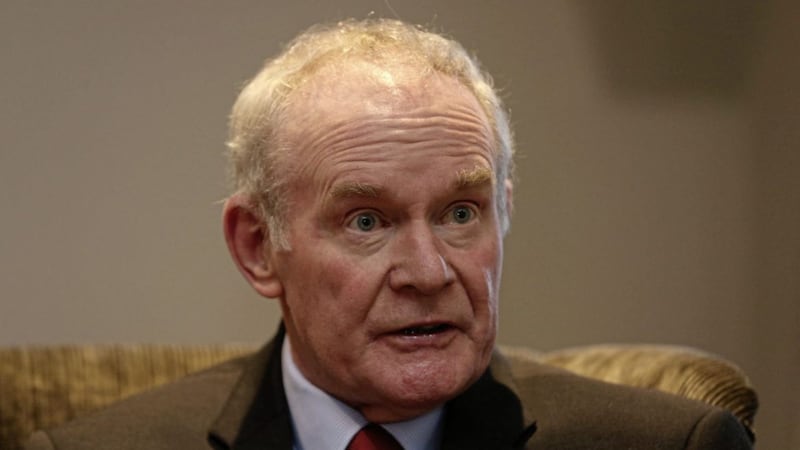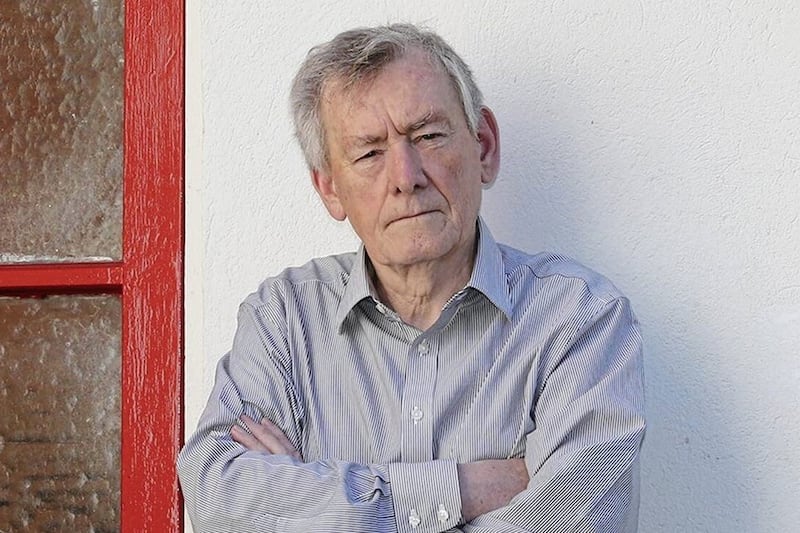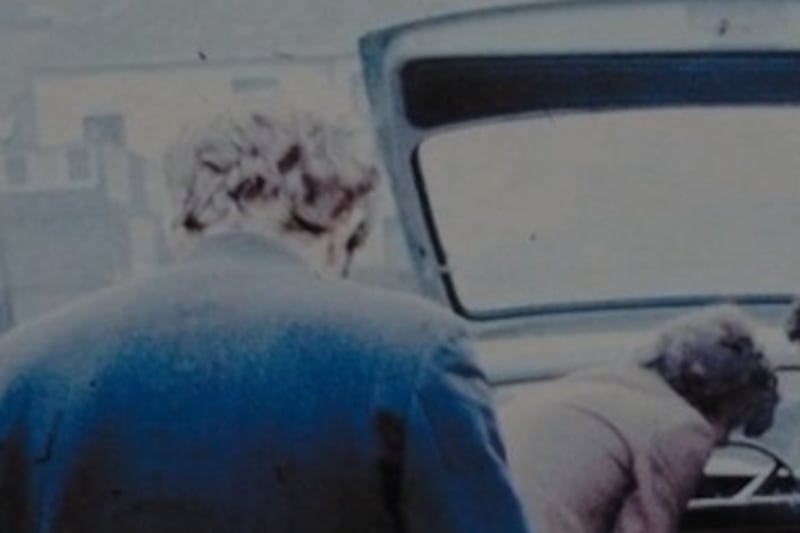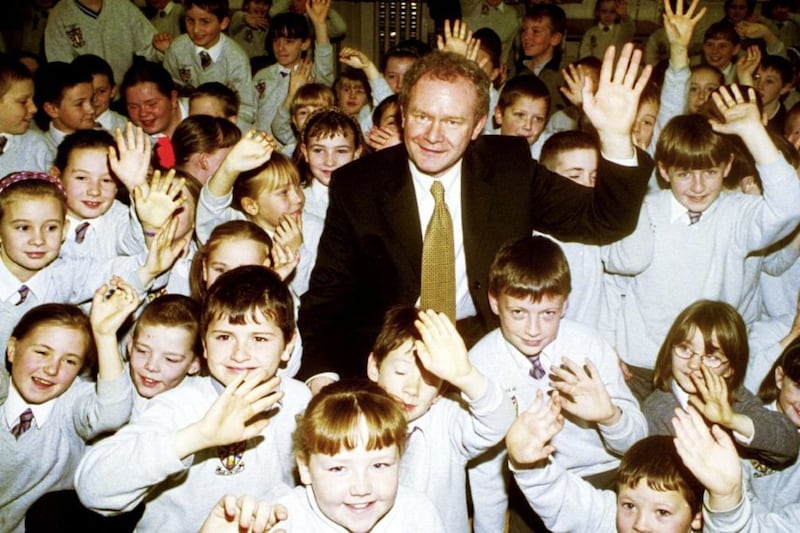LISTENING back to Martin McGuinness's final interview with The Irish News only reinforces how much politics in the north lost out with his death two years ago today.
While parts of the half-hour conversation were reported at the time, the bulk of the interview is published for the first time today, providing fresh insight into how the Sinn Féin figurehead saw the political crisis that prevails today unfolding.
And although aspects of the conversation touch on the personal, arguably its greatest significance is as a swan song for the decade of devolution that followed the St Andrews Agreement.
It has elements of hope and optimism for the future but at the same time it is steeped in regret and despondency, as the former deputy first minister recounts missed opportunities to move politics forward and the intransigence that ultimately led to the institutions' collapse.
On January 19 2017, speaking in the Bishop's Gate Hotel in his native Derry, Mr McGuinness said he was determined to fight the illness that would claim his life soon afterwards.
March 2018: Martin McGuinness's passing left a void in northern politics
He was planning to step down as deputy first minister on May 8, a decade after Sinn Féin entered power-sharing with Ian Paisley and the DUP.
Conceding that he would no longer be involved in electoral politics, the 66-year-old rejected suggestions that he was retiring.
"I am very, very determined to be an ambassador for peace; for the whole concept of Irish unification; for reconciliation on the island – not just between communities in the north but I think unionists and the British government need to get their head around the need for reconciliation throughout the island and unionist politicians need to recognize that we are best served by working very closely together," he said.
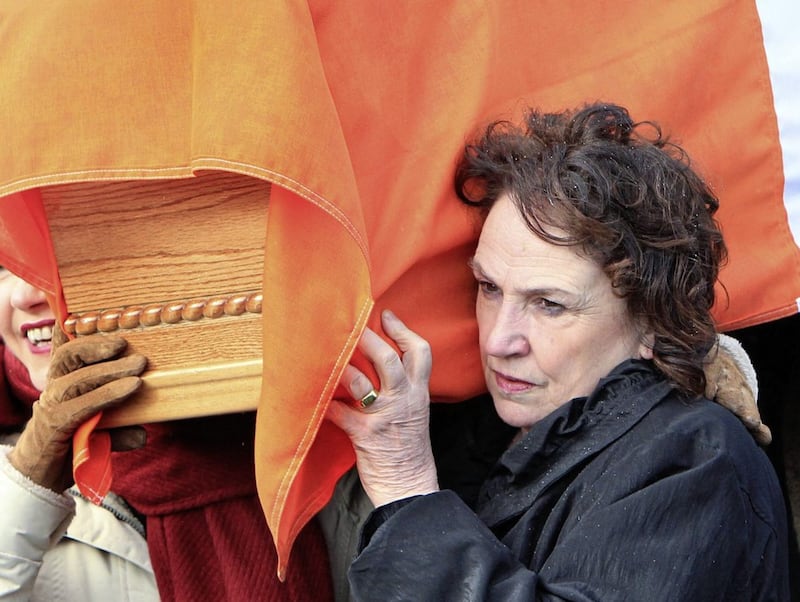
The former deputy first minister said collaboration was particularly important given the UK's vote to leave the EU seven months earlier.
"We have a British government that couldn’t care tuppence for either the unionist or nationalist people, or the people in the south in relation to the decisions that mainly England has taken, which are hugely detrimental to political progress and economic progress on the island of Ireland."
Two years after the death of former deputy first minister Martin McGuinness, @markdevenport asks @moneillsf if local politics would be in the same situation if he was still alive. pic.twitter.com/LtytvNgGrA
— BBC News NI (@BBCNewsNI) March 21, 2019
He said his decision to resign as deputy first minister less than a fortnight before came after he offered first minister Arlene Foster the opportunity to step aside "for four to five weeks" at the height of outcry over the Renewable Heat Incentive (RHI) scandal.
He said he'd phoned the DUP leader in the wake of explosive allegations made by Jonathan Bell.
In Pictures: Martin McGuinness through the years
Mrs Foster declined his offer, which he said had a precedent because her predecessor Peter Robinson had temporarily stepped aside at the height of the so-called Irisgate scandal.
"That left me in an untenable position – there is just a drip feed of all sorts of allegations which in the public mind smacks not just of incompetence but allegations of corruption are all over the place," he said.
However, Mr McGuinness described RHI as the "straw that broke the camel's back" and said the decision to crash the institutions came after a culmination of episodes.
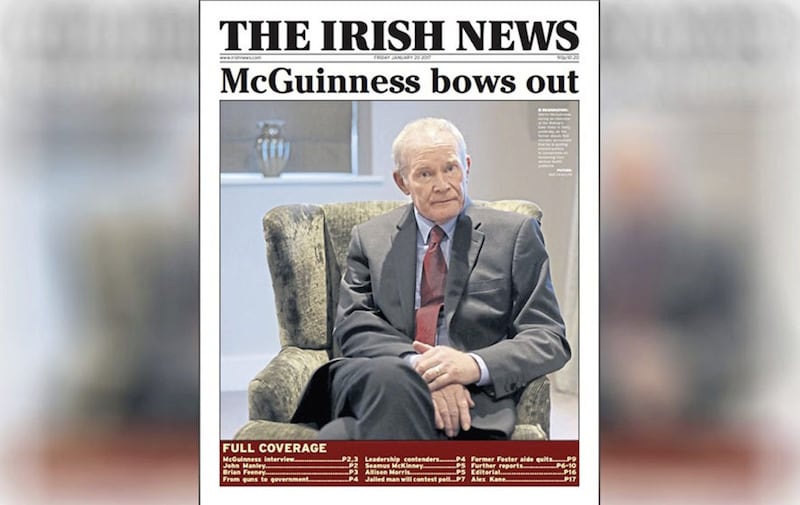
"The difficulties go back as far as the Maze-Long Kesh decision (in August 2013), where Peter Robinson and I had green-lighted a project, a project he was very much in favour of but was halted in his tracks by opposition within the DUP," he said, lamenting how the then first minister had relayed his intentions via a "letter from America to the DUP and to the Belfast Telegraph".
"Not even a phone call to myself or any correspondence with any of my advisers – it was very, very bad form."
He then listed other scandals linked to the DUP, such as Nama and Red Sky.
The former deputy first minster also highlighted a "clear antipathy" to the Irish language from senior DUP figures like Gregory Campbell and Paul Givan, who weeks earlier had suspended funding for the Líofa bursary scheme.
Asked whether devolution was salvageable, Mr McGuinness insisted Stormont's restoration was conditional and dependent on whether the DUP and the British government "change their attitude".
He stressed that Sinn Féin wouldn't be part of anything "that’s to do with papering over the cracks", and accused the DUP and the British government of deliberately thwarting efforts to address the legacy of the Troubles.
"In my view both of them have conspired to prevent progress on vital legacy issues and I think it absolutely scandalous that the lord chief justice on three occasions sought support to conduct a five-year programme of historic inquests and yet that was denied by people who are effectively colluding against the very mechanisms and structures that we agreed during the course of the Fresh Start agreement," he said.
The interview concluded with Mr McGuinness bemoaning the lack of reciprocation for his outreach efforts, which the previous year included a visit to the Somme, a meeting with Queen Elizabeth, and attending a Northern Ireland game at the 2016 European Championships in France.
Mrs Foster had declined his suggestion that together they attend both Republic and Northern Ireland games.
"I didn’t think it was too much to expect that we could’ve been involved in the beginning of outreach but it didn’t happen," he said.
